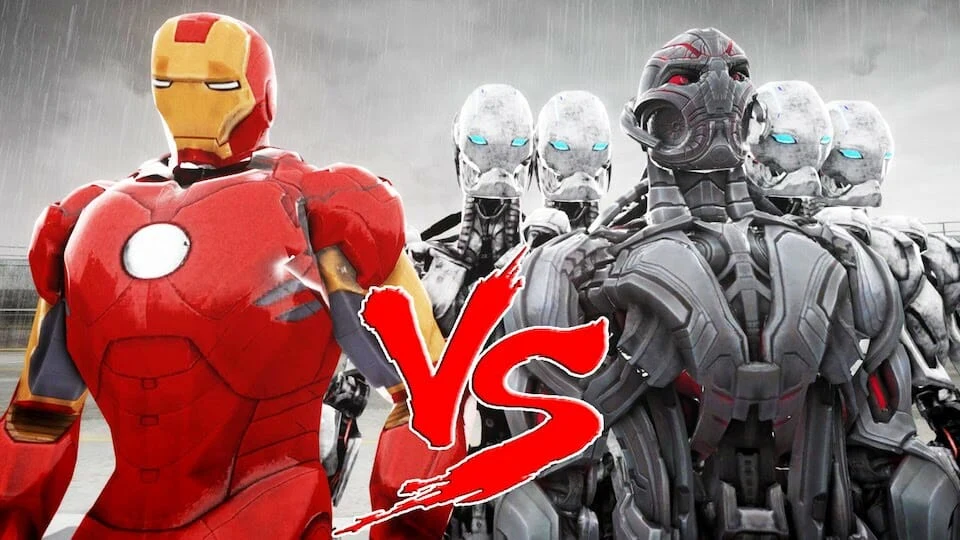
Man vs. Machine
So will machines replace human beings in the future?
It was in 1997, when Deep Blue, IBM’s supercomputer, defeated Gary Kasparov, the reigning world chess champion of the era, that people started asking…
Is a machine smarter than human beings?
Will machines replace humans in the future?
This wasn’t about industrial machines that could lift heavy materials or pull metal that weighed metric tons. This was about the machines with cognitive abilities.
Yes, it was only to play chess that it was programmed, but this only emphasized the fact that a machine can indeed be programmed to think and act like human beings.
Many are still under the impression that the disruptive nature of the machines of the modern day poses a risk to the human race, creating problems for big business. However, this is not true.
The main objective behind Artificial Intelligence is to help humans take advantage of the knowledge base software and resources available and solve the problems that matter the most by working together with these machines.
It is about achieving the right balance between human beings and automation to come up with the optimal outcome.
It is not about job replacement, but there sure is going to be a job transformation.
Machines can make it easier for humans to analyze and understand the trends as well as the future scenarios while making decisions. However, machines in no way cannot make decisions on behalf of human beings.
It is the ‘people factor’ that plays a crucial role in business decision-making. The decisions thus taken are for the benefit of the people and the organization as a whole.
A decision taken from the data perspective, no matter how logical it may seem, need not be in the best interests of individuals or a group. It is human judgment that makes this possible. It comes through experience, not technology.
HR is one area in business that is all about people and the kind of relationships that exist between them. While technology can provide the necessary tools for HR professionals to make informed decisions, in no way will machines be able to replace them.
In the coming few years, it is predictable that it will be decided who will handle what work, whether it will be done by humans or virtual beings. Routine tasks would all be automated and managed by machines, while the unpredictable tasks that require problem solving, creativity and flexibility will require human involvement.
That said, it doesn’t mean that computers will not be able to handle processes that are more sophisticated than this. Nevertheless, with more efficient deployment of computers, HR professionals will be able to take on a new role that involves problem-solving, overseeing processes, and conducting rescue operations when things seem to go wrong.
With computers enabling massive optimization, there will be no scope for errors, leading to crises at work and in society.
With the rapid advancement in technologies, it is high time HR professionals started shifting their focus from managing day-to-day administrative tasks to developing better strategies that can help them manage people in a better way.
They can use advanced tools and techniques to complete their tasks in an easier and faster way. For instance,
They can use online tests and Applicant Tracking Software featured in Spotsaas to screen suitable candidates and categorize the remaining ones into groups based on specific skills and aptitudes.
They can utilize applications that direct employees to suitable training courses, helping them excel in their roles and advance.
They can use LCS (Learning Content Systems) and LMS (Learning Management Systems) to design courses that are tailored to the requirements of individual employees.
By using self-service technologies such as MSS (Manager Self-Service) and ESS (Employee Self-Service), they can allow their employees to maintain their own HR records and access information without the intervention of HR staff. Managers will be able to perform many HR tasks, such as approving leave requests, changing payroll details, and making performance appraisals online, by themselves.
They can conduct a fair and comprehensive performance evaluation of their employees by evaluating their data that is collected consistently, over a considerable time.
They can use automated payroll processes to design innovative bonus and incentive programs to motivate their employees and improve their productivity.
These steps can help any HR team save a lot of time, effort, and money, while taking a lot of pressure off their shoulders.
HR professionals deal with large amounts of data. Keeping abreast of the latest technology tools and learning better software interfaces can help them make sense of this massive amount of data and take informed decisions that work towards the benefit of the employees as well as the organization.
Yes, machines can eliminate routine work by automating the tasks. They do replace humans whose job is to manage these routine tasks. However, they do open a thousand more doors that humans never knew existed. All that humans need to do is recognize these opportunities, identify these doors, and make the most out of them.
To quote a simple example here, let us take a case of two vendors of drinks and snacks. Just when they thought they were doing good business, technology replaced both of them by bringing in vending machines.
While one was totally upset about losing his job to a machine, the other met up with the vending machine manufacturer and suggested a few improvements that could improve the efficiency of his machine.
As a result, the second vendor achieved great success in bringing some of the most amazing vending machines into the world.
It is often miseducation and fear that are preventing humans from foreseeing the kind of future that machines can help them create. Human presence is still very much essential in the process. They need to understand their role in managing the unpredictable and figure out the right way to do this with invaluable help from their machine teammates.




